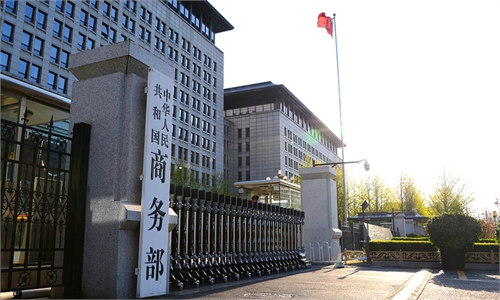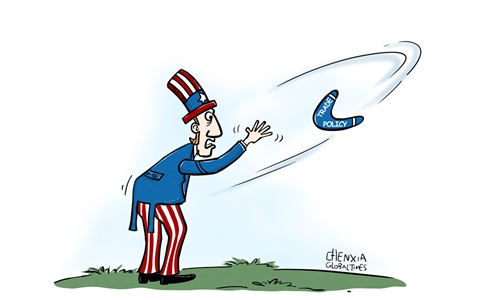
Photo: IC
In an article titled "sleepwalking into a global trade war," Anne O. Krueger, a former World Bank chief economist, noted that the US Inflation Reduction Act (IRA), which came into effect on January 1, 2023, will inflict so much damage on major trading partners and allies that they will almost certainly have to retaliate.The tit-for-tat escalation will not be limited to the auto and the semiconductor industries, but could affect a growing number of export categories. This means that the US will likely provoke a global trade war not seen since the end of the World War II.
If such US acts are not stopped promptly, global trade rules and even global political, military, and social rules will be reshaped. In the face of the legislative actions of the US government, it will be feasible in the short and medium term for China and Europe to jointly respond.
In fact, the IRA not only targets European new-energy vehicles (NEV) or a certain industrial chain, but the entire European industrial chain. The act includes three major parts - alternative minimum tax (AMT), drug pricing reform, and new-energy credits and subsidy projects. The first section will affect all large companies in Europe, involves its whole industrial chain. The second part has little to do with Europe and the third part will affect its new-energy sector.
The NEV and green energy industries play an important role in the European economy. In 2021, the global sales of NEVs accounted for less than 10 percent of total vehicle sales, but by April 2022, the market share of NEVs had risen to 25.3 percent. By 2025, in Europe and China, NEVs are expected to account for 39 percent of their auto sales. For European economic powerhouses like Germany and France, NEVs take a larger market share, which is expected to reach 40-50 percent by 2025. This shows NEV industry's position in European countries' economies is rising rapidly.
Similarly, green energy is becoming an important contributor to European economies. Europe has been taking a leading position in green industries and ecological transition across the world. There are 16 European countries in the top 20 countries in the Green Future Index 2022 of the MIT Technology Review.
Facing the US' IRA legislation, how should Europe respond? A number of European scholars advocate European nations to commensurate countermeasures. However, only when European countries join forces with other economies they may be able to form a considerable constraint on the US.
China also plays a leading role in the world in green transition and NEV production and consumption. China has been the largest NEV market in the world for seven consecutive years. China has the largest new-energy industrial chain. It is conceivable that the IRA will also affect China's new-energy industry.
Emerging market economies are also important force the EU should join hands with to respond to the US' IRA. For example, the Union for the Mediterranean has asked the European Commission to make a common response to the US' IRA, and some of the countries are emerging economies in North Africa and West Asia. France clearly played a role in the joint operation of the Mediterranean countries.
European countries led by Germany and France have substantial advantages in production and market scale to confront the US' IRA. In terms of NEV production, European countries are expected to see rapid development in the overall green transition. On the market side, European countries are important NEVs market. The EU, with a population of 500 million, has relatively high income levels. EU residents have strong purchasing power when it comes to NEVs. In short, there is great market potential.
The implementation of the US' IRA is expected to imperil the global industrial chain, especially the green industry, and European countries will bear the brunt. If Europe can join hands with China and other emerging market economies, they can effectively respond to the US' move in short and medium term. For example, the US can be forced to implement at least partial exemptions for China and European countries in NEVs and green energy. As for the long-term perspective, it is still necessary for China and the EU to actively promote the reconstruction of the rules for international trade.
The author is a professor at the Institute of Regional and International Studies at the University of International Business and Economics in Beijing. bizopinion@globaltimes.com.cn



